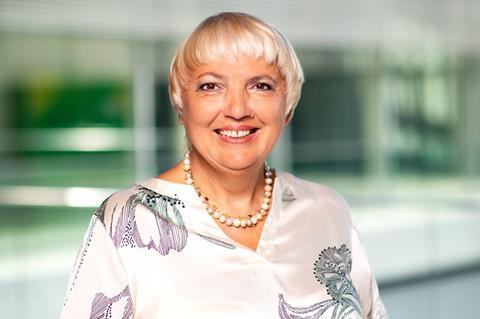
Leading international industry figures have joined the debate about Germany’s revamp of its national film funding system, criticising in particular the proposed introduction of an investment obligation.
Claudia Roth, Germany’s state minister for culture and media, unveiled her proposals to reform the country’s film funding system last week. The key elements are a 30% tax incentive for productions filming in Germany and a 20% investment obligation for streamers.
Charles Rivkin, chairman and CEO of the Motion Picture Association (MPA), said that he had met with German Chancellor Olaf Scholz and others in the coalition government during this year’s Berlinale to discuss the planned reforms and present the MPA members’ perspective.
“Policy makers appear to be heading in the right direction with Germany’s production incentives, making them more stable and more predictable. Locking in that improvement is a very smart move for Germany,” Rivkin said in a keynote given at a panel on the future of German film funding held by the international law firm Greenberg Traurig.
“At the same time, the Motion Picture Association and the member companies have some very serious concerns about the current proposal on investment obligations,” he argued. “This could actually diminish local production by forcing investors like us into a regulatory maze that is highly complex where [one makes] decisions by ticking the box of government requirements rather than focus on the creative visions and entrepreneurial dynamics.”
Wolf Osthaus, Netflix’s senior director public policy DACH, Benelux & Nordics, echoed Rivkin’s concerns. “The investment obligation is not fit for purpose to bring more production to Germany,” Osthaus said.
In an allusion to Culture Minister Claudia Roth’s claim that the tax incentive and investment obligation were” two sides of the same coin”, Osthaus argued that “there’s no connection between the two, they are serving two different purposes. The risk is that the investment obligation becomes the millstone around the neck of the tax incentive, and with that we drown the whole industry.”
Tax incentive
However, Roth’s proposal for a tax incentive to replace the current German Federal Film Fund (DFFF) and German Motion Picture Fund (GMPF) production schemes was given a more positive reception.
Ashley Rice, president and co-managing partner of Cinespace Studios which became the owners of Studio Babelsberg last year, called the proposed incentive “a game changer” and suggested that legislators should focus on getting the tax incentive in place.
“I think that the tack Austria took [with its FISA+ incentive programme] is really wise. They wanted to open the doors and see the impact, and they’ve seen it very quickly. It’s a trusted model, so let’s go for it.”
The benefits of a production incentive over an investment obligation were also highlighted by NBCUniversal’s SVP head of global production external affairs Veronica Sullivan and MPA’s president EMEA Stan McCoy with the example of the production of Peacock TV series Pitch Perfect: Bumper In Berlin in Germany in 2022 which received around €8m funding from the GMPF.
Sullivan cited the findings of an Oxford Economics on the series’ economic impact which showed that it generated total spending in Germany of over €26.6m with more than 650 local businesses across the country being supported and the creation of 700 full and part-time jobs
“What’s important in the conversations we’re having with the Länder [about the tax incentive] is that these benefits are dispersed around Germany,” McCoy explained. “For example, there were set builders from Bremen and the production bought textiles from Lower Saxony. So, the idea that vendors from all over Germany get work from every production is a compelling case to make to the state governments.”
The fact that the proposed tax incentive is to be uncapped would be a positive step forward, especially for TV series where the producers want to have the ability to plan ahead for more than one season.
Under the current GMPF capped scheme, however, it has not been not possible for international producers to make long term plans.
Federal states
Meanwhile, reports from a high-level meeting held during the Berlinale between Claudia Roth and representatives of the 16 federal states (Länder) indicate that both sides are not necessarily singing from the same song sheet as far as the proposed reforms are concerned.
“The first message is that all 16 of us want to help the federal government to get [the reforms] through by the end of 2024,” Conrad Clemens, state secretary from the Free State of Saxony, told the audience at the Greenberg Traurig panel.
“A second message is that an investment obligation in its current form will not come into existence. It is too high [at 20%] and it is too complicated,” he said. “If we come to the compromise and want to introduce this new funding model, we should actually start at a lower threshold.”
The tax incentive is also a bone of contention is some quarters in the regional parliaments.
Simone Großner, state secretary for federal and European affairs for the State of Saxony Anhalt, said that, after the meeting with Roth, “one could see that there is long road ahead of us and we need more movement from the Federal MInistry of Finance because one gets the slight impression that the central government is making the reforms and the Länder are the ones supposed to pay” since the current discussion paper envisages the tax incentive being financed by the federal states relinquishing their revenues from corporation and income tax.

























No comments yet